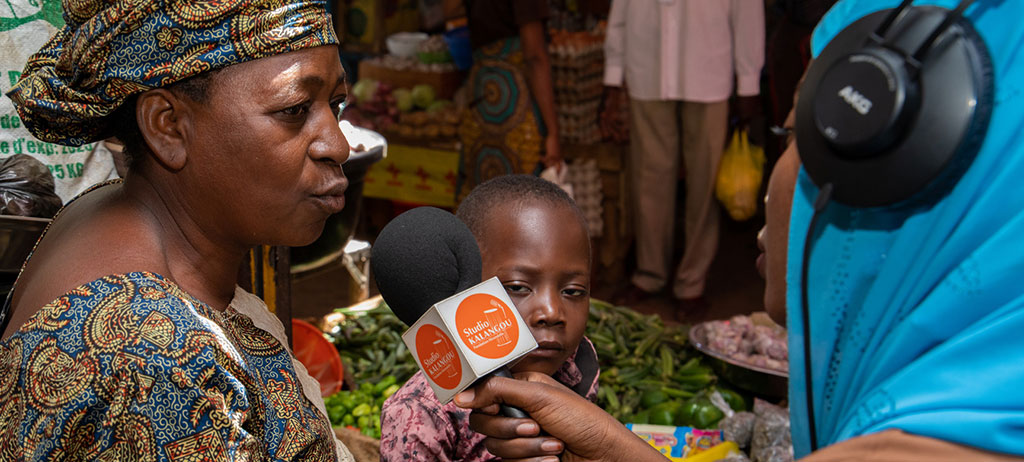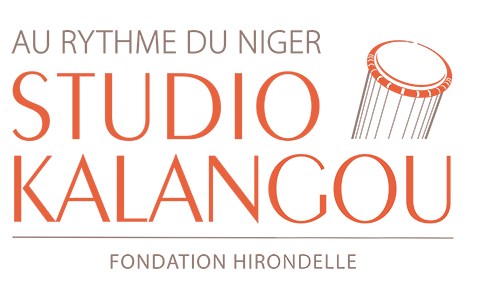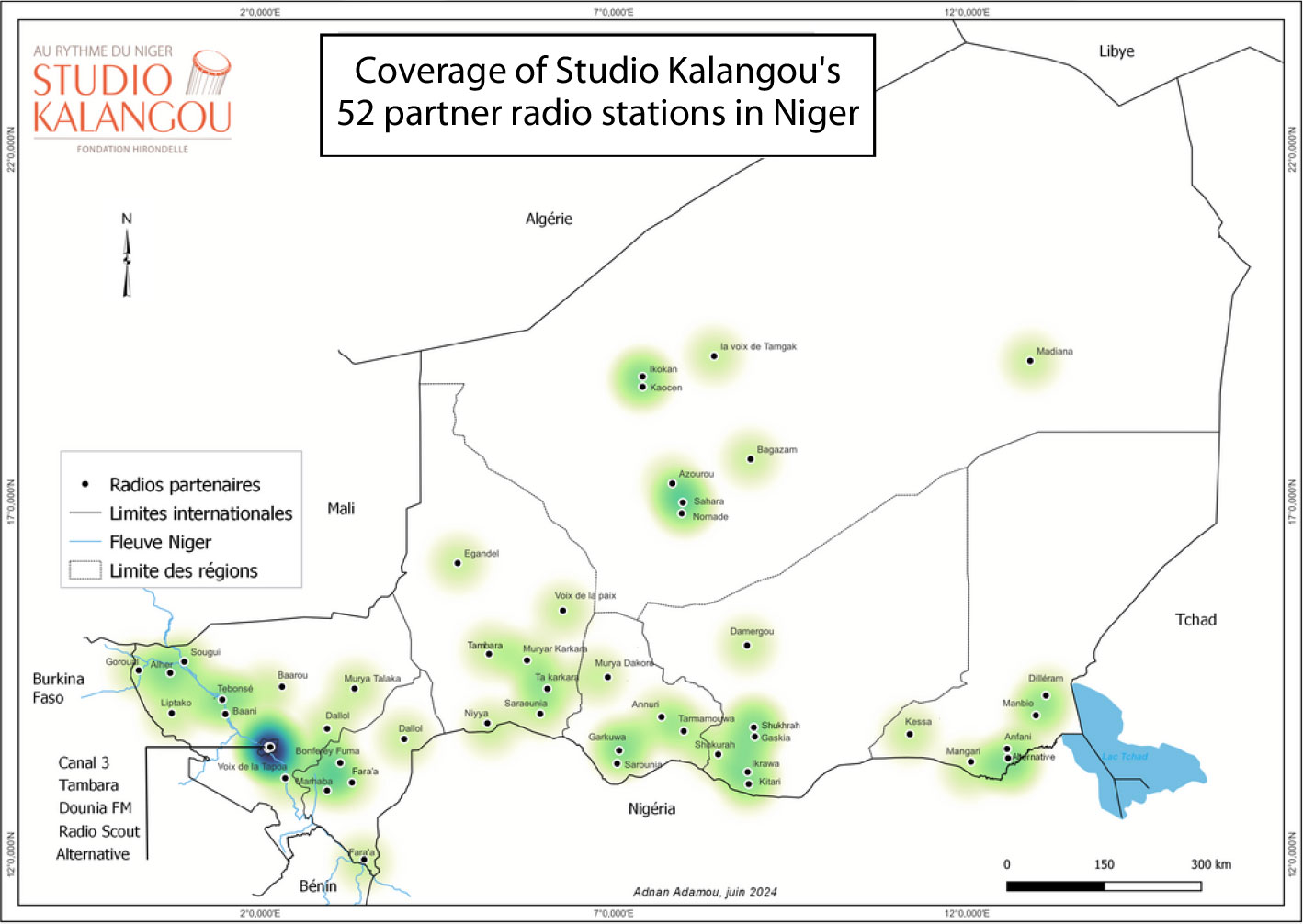

Studio Kalangou is a three-hour daily radio programme about Niger launched in 2016. It offers news bulletins in five languages (French, Haoussa, Zarma, Tamashek and Fulfuldé), cultural programmes, debates and magazine shows.
Thirty journalists deliver these different programmes, supported by a network of around fifty correspondents in the country’s eight regions. Its broadcasting network includes 52 private and community radio partners, reaching 70% of Niger’s population. Studio Kalangou provides them with financial support and capacity-building in journalistic, technical and managerial areas.

Financial volume 2023
2,241,210 CHF
Sources of funding
- Switzerland (SDC mandate)
- UNICEF
- Germany (MOFA)
- United Kingdom (FCDO – CSSF)
- Income generated
- IFPIM- International Fund for Public Interest Media
- Switzerland (SDC – Core contribution)
- Germany (GIZ – ProRES)
- European Union
- Czech Republic (MOFA)
- United States Embassy
- Fondation du Domaine de Villette, France & Thierry Lombard
Key figures for 2023
135,800 followers on social media
3.4 million listeners per week
792 journalists, technicians and managers trained
52 radio partners
5 broadcast languages
980 hours of broadcasting per year
Journalism Trust Initiative (JTI): this initiative provides a regulatory framework and certifies media that practice professional and ethical journalism.
More information on the project is available in our factsheet Audience Study 2023.
Context
The military coup of 26 July 2023 in Niger led to the dissolution of the main state institutions and the suspension of the Maison de la Presse. The sanctions imposed by the Economic Community of West African States (ECOWAS) and the West African Economic and Monetary Union (WAEMU) had a severe impact on the economy, and the country faced an unprecedented wave of disinformation. In July 2024, Niger joined the Alliance of Sahel States, following the signing of the treaty creating the Confederation of the Sahel, alongside Mali and Burkina Faso, in order to strengthen their cooperation.
Building trust in the age of disinformation
The start of 2023 saw the launch of a third hour of programming called “Le Niger sur Kalangou”. This midday programme offers generalist and entertainment content. It has been a great success, particularly in remote areas. Studio Kalangou has actively contributed to the co-productions of the three Fondation Hirondelle studios in the Sahel, launched in 2023. These co-productions are broadcast on 202 radio stations and 12 television channels, in 12 languages, reaching 7 million listeners.
Studio Kalangou is improving its coverage of climate issues, by publishing local news that focuses on solutions for vulnerable populations. Studio Kalangou is also migrating to solar energy and supporting its partners in the same transition.
In response to the strong growth in the use of social networks in Niger, in December Studio Kalangou developed its “Whatsapp Club”: a presence on the country’s key messaging app, often used to spread fake news. With verified information, this enables Studio Kalangou to reach a younger, urban audience who listen to the radio less regularly.
Studio Kalangou journalists are also being trained to write documentary series. Our media partners receive training in running debates and forums, image journalism, fact-checking and radio equipment maintenance.
Priorities
- Digital development
- Responding to climate issues by improving coverage and migrating to solar energy
Activities
- Production of cultural programmes, debates and daily 3-hour radio magazines in 5 languages
- Training for journalists from partner radio stations and Studio Kalangou
Our impact
According to an audience survey conducted in 2023, Studio Kalangou’s audience has grown by a remarkable 30% since 2020, with 42% of Niger’s population now listening to its programmes at least once a week.
The level of trust in Studio Kalangou programmes is high: 74% of listeners have absolute confidence in the information broadcast.
Testimonial
“This programme brings about change because it encourages children to speak up and understand their rights. Young girls can now say no to forced marriage, and to any proposal from their parents that doesn’t guarantee them a better future, free from violence.”
Listener of Azourou radio of Tchirozerine (Niger).
